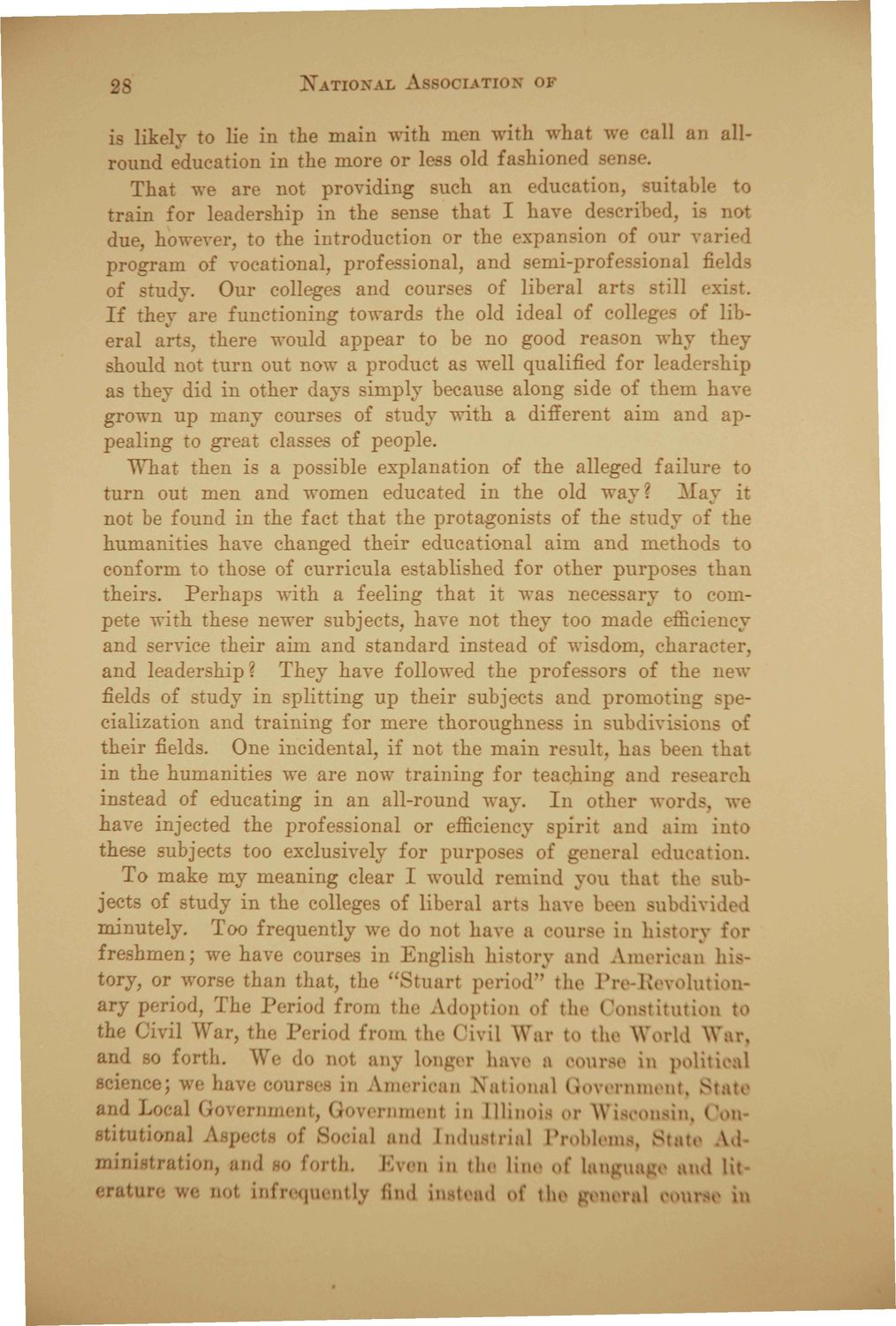| |
| |
Caption: Booklet - Kinley Speech Cirrculum and Consequences (1924)
This is a reduced-resolution page image for fast online browsing.

EXTRACTED TEXT FROM PAGE:
28 NATIONAL ASSOCIATION OF is likely to lie in the main with men with what we c I an allround education in the more or I s old fashioned sense. < That we are not providing such an education, suitable to train for leadership in the sense that I have d jcrfbed, is no due, however, to the introduction or the expansion of our varied program of vocational, professional, and semi-professional fields of study. Our colleges and courses of liberal arts still e:-:i If they are functioning towards the old ideal of colleges of liberal arts, there would appear to be no good reason why they should not turn out now a product as well qualified for leadership as they did in other days simply because along side of them have grown up many courses of study with a different aim and appealing to great classes of people. What then is a po—ible explanation of the alleged failure to turn out men and women educated in the old way ( ^lay it not be found in the fact that the protagonists of the study of the humanities have changed their educational aim and methods to conform to those of curricula established for other purposes than theirs. Perhaps with a feeling that it was necessary to compete with these newer subjects, have not they too made efficiency and service their aim and standard instead of wisdom, character, and leadership ? They have followed the prof( >rs of the new fields of study in splitting up their subjects and promoting specialization and training for mere thoroughnc in subdivisions of their fields. One incidental, if not the main result, has been that in the humanities we are now training for teaching and r arch instead of educating in an all-round way. I n other words, w have injected the professional or efficiency spirit and aim into these subject too exclusively for purpo - of general education. To make my meaning clear I would remind you that the subjects of study in the colleges of lil ral arts have been subdivided minutely. Too frequently we do not have a course in history for freshmen; we have cours 1 in English history and American history, or worse than that, the "Stuart period" the Pre-Kevolutionary period, Tin Period from the Adoption of the Constitution to the Civil War, tin Period from the I ivil War to the World War and so forth. AW do not any longer havo a course in political scienc ; \ hav courses in American National (lovernment) tat and Lex I (;< eminent, G rnment in [llinoi or Wisconsin. (\>ntitUtional Asp< * of Social and Industrial Problems, State Ad miniftn ion, and HO forth. Even in the lin< of language and lit attire We OOl infrequent!, find instead of the general C0U1 \\
| |